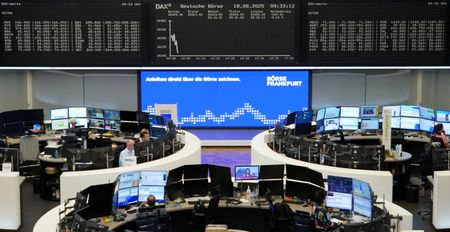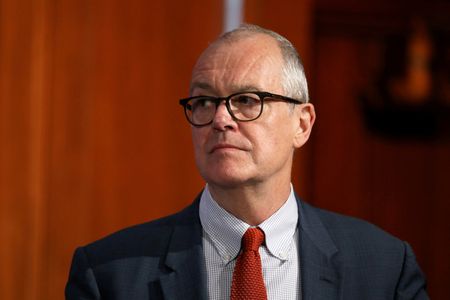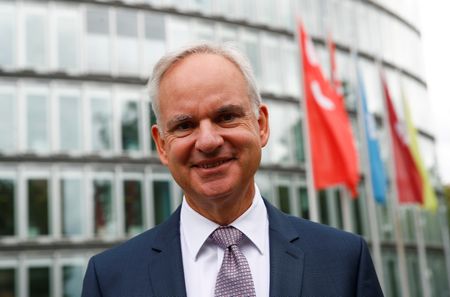By Amir Orusov
(Reuters) – German machine and auto parts manufacturer Schaeffler is aiming to double its adjusted operating profit margin in 2028 from last year’s level, it said in a presentation of midterm targets unveiled on Tuesday.
Its shares rose 3.6% at 1336 GMT after it announced at a capital markets day in Frankfurt that it expects its adjusted earnings before interest and taxes (EBIT) margin to reach between 6% and 8%, compared with 3.5% in 2024.
The outlook was supported by expectations that the company’s E-Mobility division, expanded through the acquisition of EV components maker Vitesco, will break even.
Synergies from the Vitesco deal and a cost-cutting programme launched following the acquisition are expected to reap positive EBIT impacts totalling 815 million euros ($965 million) in 2029, Schaeffler said. Job cuts aimed at reducing the company’s European headcount by 4,700 will be 80% completed by 2027, it said.
Schaeffler is also targeting sales of 27 billion to 29 billion euros in 2028, having generated sales of 24.3 billion euros last year.
CEO Klaus Rosenfeld said the company expected up to 10% of group sales in 2035 to come from sectors it has been actively exploring, including defence, electric vertical take-off and landing aircraft, and humanoid robotics.
In 2024, these sectors brought in just 1% of group sales.
Rosenfeld said humanoid robotics constituted a potential new growth sector, though it was at the beginning of its development.
“It’s important that we find the right partners with whom we can work,” he said.
Ahead of the investor day, Citi analysts wrote that Schaeffler’s in-house humanoid robot start-up could make it a leading European player in humanoid actuator hardware.
Schaeffler has previously said it is preparing to expand its defence sector footprint.
That echoes a wider trend among German automakers, including Volkswagen and Daimler Truck, which have been exploring the industry as a potential growth avenue as European governments ramp up military spending.
($1 = 0.8444 euros)
(Reporting by Amir Orusov; additional reporting by Alexander Huebner; Editing by Ludwig Burger, Miranda Murray and Joe Bavier)









